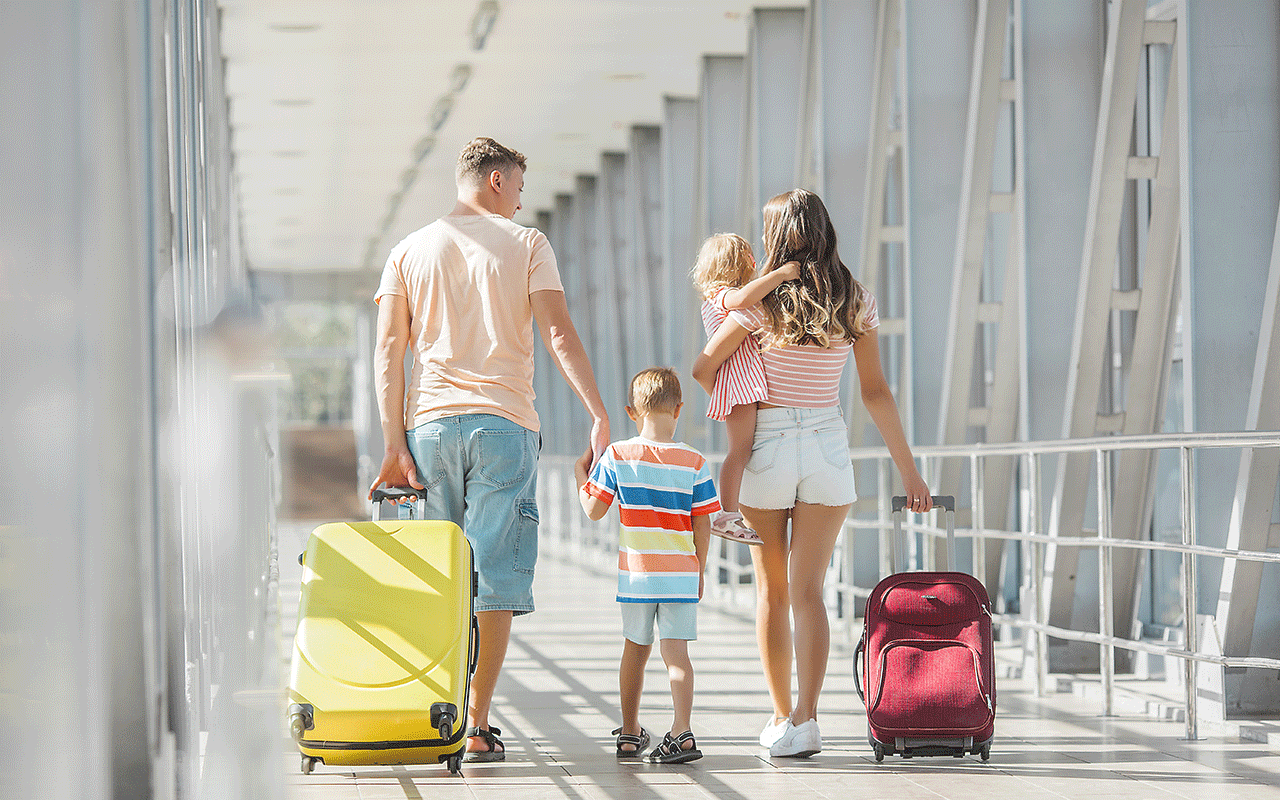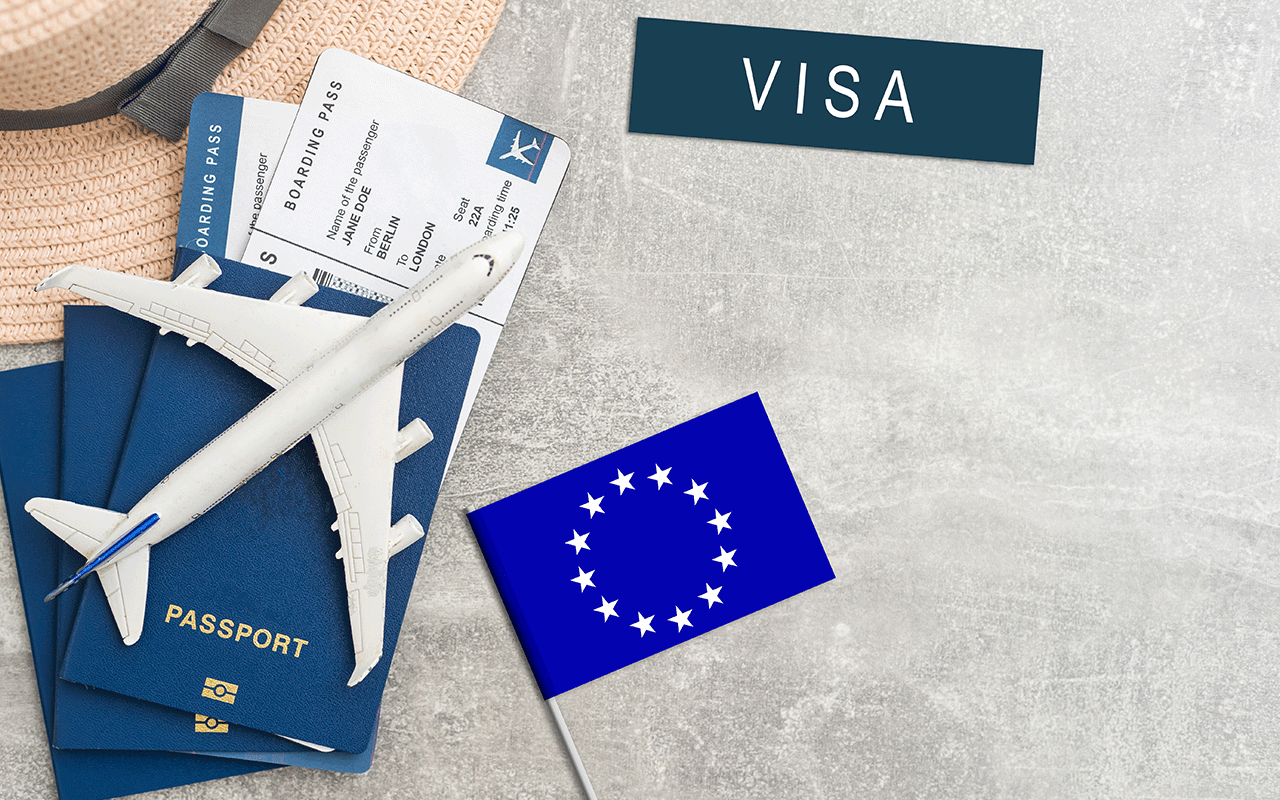Your one-stop guide to moving abroad with children

Deciding to move abroad is a huge decision for anyone, particularly when you have a family and kids to think about. There are enormous benefits to moving abroad with children; however, for the kids, this can be an unsettling experience as they will have to leave behind familiar locations, routines and friends.
To ensure your move abroad goes smoothly for you, your partner, and your children significant preparation is required. But before we get into the nitty-gritty of the prep, let’s think about how your experience will be shaped by the age of your kids.
Things to consider when moving to another country with children by age
Your child’s age will play a big role in how you prepare them for moving abroad and how they will react to the change too. Here are a few things to expect.
Babies and toddlers
Whilst demanding in other areas of your personal life, babies and toddlers are the easiest to deal with when making the move. The reason being they don’t have a particular connection to a location and lack the full awareness of time and distance. As long as you keep up their routine, they might not even notice any difference.
School-aged children
Young school-aged children will have questions, but it will be easy enough for them to make new friends at school. The only potential barrier could be the language barrier. However, if you ensure they learn the language and make an effort with them they will pick it up quicker than you think.
Likewise, you should try hard not to make any assumptions about what your children does and does not understand – they might not be able to fully conceptualise how long you will be living abroad. If you’re moving abroad with children permanently, let them know.
Teenagers
The most difficult to acclimatise to the change will be teenagers. At this age, their friendship bonds are stronger, their coming to terms with their identity and they will also find it harder to learn a new language.
Focus on selling the positives of moving abroad to teenagers, whilst ensuring they can keep connections with their friends back home. If your teenagers are close to their exams, then it may be a better option to consider holding off moving abroad until they have completed their education.

How to move abroad with a family: the key preparation involved
Moving to another country with children could be one of the most stressful times in your life. But with 560,000 people emigrating from the UK in 2022 by itself, you’re certainly not alone. And by planning well in advance, you can minimise any mishaps or unexpected changes along the way.
Involve your children from the get-go
Your older children will likely be harder to win over than the younger ones. Be enthusiastic and positive about the move, it is crucial to try to get them excited as well as the rest of your family too.
Get your kids involved in the planning process if they feel involved it will reduce any worries they may have. The majority of experts strongly believe that involving your kids in all stages of moving abroad is essential to helping them adjust. Reading picture books about moving abroad with younger children is helpful and getting older children involved with the research of your new home will be good for them.
Start early
The earlier you get started the better, this will reduce the impact of any hic-ups along the way. You need to start at least 6 months before your move date. Research your destination and nurture a deep understanding of the culture and laws.
Speak to an immigration professional
You will need different documentation to move to different countries. Make sure you research what documentation you require for your destination and that you don’t miss anything. A professional immigration expert will ensure that you have everything that you will need legally to relocate abroad and that you have it all done within the required time frames.
Arrange housing
This one should be obvious. You need to arrange a home for your new destination. We recommend renting a place first, especially if it is your first time living abroad in this country. This is because if you purchase a property over there and then decide you don’t like it then it will be more hassle when you decide to leave.
You can speak to a property consultant in the UK and abroad who can assist you with purchasing or renting a property abroad. You will need a professional if you are buying as they will understand the property laws in that country and offer you valuable advice.
Research tax laws
Research the tax laws in your new country; you could potentially be liable for taxes in your host country and where you have your citizenship. Speak to an accountant about what your tax status is and make sure any loose ends are taken care of.
Healthcare
Many other countries do not have free healthcare like the UK, and it does not work the same in every country. Your current healthcare plan may not be accepted in another country either so be sure to check this out. If you are relocating with work check if your employer covers this. Alternatively, you can purchase international health insurance.

Prepare your documents
There will be paperwork involved with moving to another country. An immigration consultant will ensure you have the correct documents. However, it is still your responsibility to gather the documents.
You may need to apply for a VISA, especially if you are going to be working or going to school. The application for VISAs is not a fast process either so you need to start this as soon as possible. Below is a list of documents you will need. Some may not be applicable.
- Birth certificate or adoption papers
- Child custody papers
- Divorce papers
- Driver License
- Marriage certificate
- Social Security card
- Medical records
- School records
Access to funds
Speak to your current bank and see if they have affiliates within the new country you are moving to. If not, you will have to open a new bank account over there. Most banks these days have online banking which makes opening a new bank in a new country much easier.
Mobile phone contracts
Check that your current mobile phone provider has a service within that country. If not, you will need to get a new mobile phone contract.
Immunisations
Certain countries have recommended vaccinations to protect you from contracting illnesses common within that country. Check with the Department of Health or your local travel health clinic to find out what vaccinations (if any) you will need. Some vaccinations require a specific amount of time to become effective so ensure you get them done with plenty of time to spare.
Dealing with pets
Each country has different requirements for moving pets. Research the country’s animal importation laws as some countries may forbid foreign pets or restrict certain breeds of dogs. You will likely need to provide a health certificate for your pet in order to prove your pets are up to date with their vaccinations. In some cases, pets will need to be quarantined for a certain amount of time.
Moving your belongings
You will need to hire a professional international moving company to move your items abroad. The items you are moving will require extra time and permits, so always tell the company what items you are planning on moving – if there are any prohibited items, they will tell you.
Get quotes from several reputable companies with good reviews as the last thing you want is to have a load of hassle moving your belongings as this will only add to the house moving costs.
Be sure to put together a checklist of all the items you are moving too, so you don’t forget anything. For European moves, VanaMango can provide specialist insights and has access to trusted transport providers to ensure your move to anywhere in Europe is as smooth as possible and stress-free.

Bonus tips for moving a family abroad
So those were the logistical steps involved in moving overseas with your family. But are there any extra measures that expat parents can take to help their children adjust?
Of course! Here are just a few that will make the run-up to moving day that little bit easier.
Check the new place out
Take your family to their new destination prior to moving so they can look around and familiarise themselves with their new home and come to grips with the reality of the move. It will also be a nice family break for them too.
Research education
Enrolling your children in foreign schools can take time so ensure you being this process early. If your children do not speak the native language then enrol them at an international school, this will ensure they can still communicate and continue their education.
Depending on their age, you might also want to get your child’s input. Ask them what they think about the options available to you. After all, a happier kid is going to learn more.
Choose the right neighbourhood for your family
Research the neighbourhoods of the place you are moving to. You want to make sure you pick one which is expat friendly, has plenty of outside space for the children to play, good healthcare, childcare and schools.
If moving to a city, this can be very busy for kids and especially if they are not used to city life. Have an explore in person or on Google Maps and make plans to discover the area together. There will be plenty of parks for them to play in so take them to these places when you visit prior to moving.
Look at social opportunities for your kids
The social side of moving for children is crucial. Get them to join sports teams, games teams and go to social events. This will help them to make new friends and once they make new friends, they will feel much more comfortable. Encourage your kids to socialise and meet new people.
Maintain friendships and contact with family back home
If you keep connections strong back home this can be very helpful for children, especially with their first few weeks and months in their new home. This is because they won’t know anyone initially so it will be good for them to have someone from back them to speak to and socialise with.
Research childcare options
Look for childcare prior to moving. Make sure you research them to ensure they are reputable; look at their reviews as you need to make sure they are safe. In some places, childcare may be limited so the earlier you get it sorted the better.
That’s a wrap
What do you know? We’ve reached the end of this guide. We hope that it’s shown that moving abroad with children doesn’t have to be a headache if you’ve done the preparation well in advance. Simply follow these steps and everything will fall into place – your kids will thank you.
